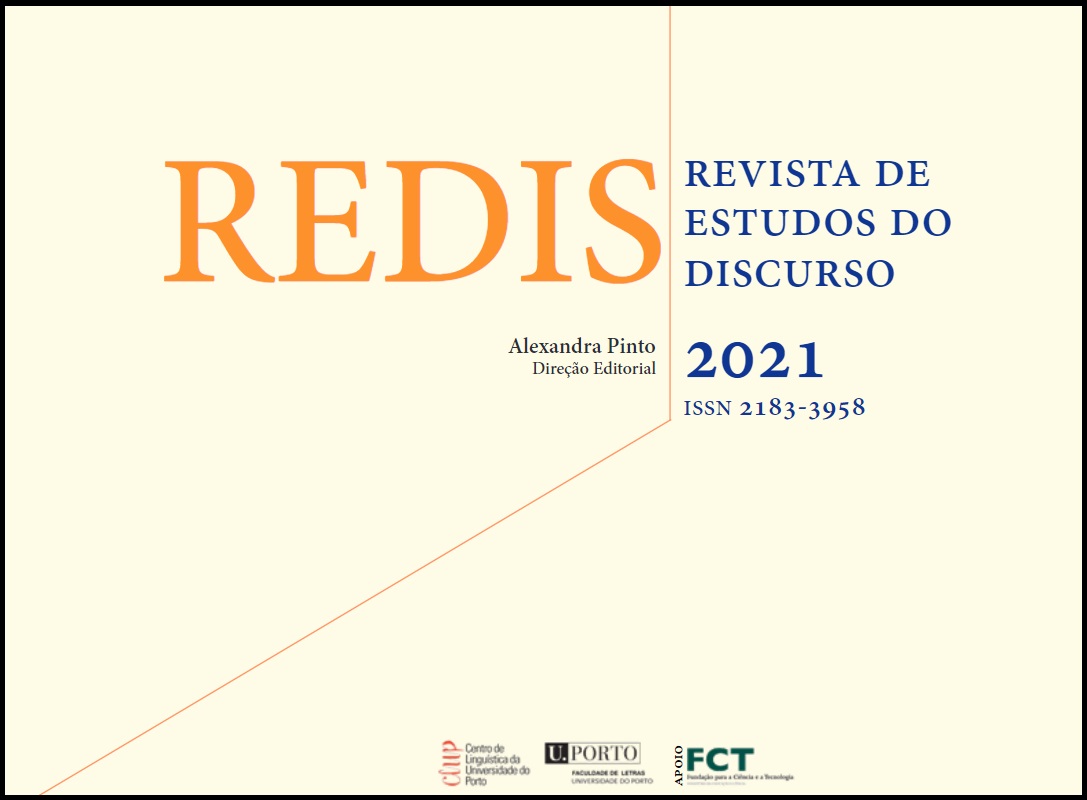“I can give you nothing else but my blood”: an analysis of the construction of ethos
DOI:
https://doi.org/10.21747/21833958/red10a3Keywords:
Textual Genre, Suicide note, Getúlio Vargas, EthosAbstract
In 1954, Brazil, then governed by President Getúlio Vargas, was undergoing a major political crisis. The military leadership and political opponents demanded the president’s resignation. However, before being deposed, Getúlio Vargas took his own life by shooting himself in the chest. To the Brazilian people, he left a typewritten letter that was found next to his body. The “testament letter”, as it became known, made clear the reason for the suicide and transformed Getúlio Vargas into a martyr and hero of the Brazilian people. Years after his fateful death, a second letter was made public, handwritten and much more concise than the first. While many believe that the handwritten letter is the true “testament letter”, no studies of this second letter have been found in linguistics. Thus, to fill such a gap, this work seeks to analyse the two letters and present the different linguistic-discursive strategies used by the author in the construction of ethos. As theoretical assumptions, we will use the framework of textual genre analysis proposed by Adam (2001) and some concepts of ethos proposed by Amossy (2019) and Maingueneau (2007; 2019). Our study proves how important the “testament letter” was in the construction of Getúlio Vargas’ image. It also shows that there are some significant differences in the linguistic-discursive strategies used by the author in the two letters. The martyr image is present in both letters. However, in the handwritten letter, the author constructs the image of someone who wants to be forgotten in his own country. In contrast, in the testament letter, the author builds the image of a hero who does not wish to be forgotten by the Brazilian people.
References
Adam, J.-M. (2001). En finir avec les types de textes. In M. Ballabriga (Ed.), Analyse des discours. Types et genres: Communication et interprétation (pp. 25-43). Toulouse: EUS.
Adam, J.-M. (2008). A linguística textual: introdução à análise textual dos discursos. (M. S. Rodrigues, L. Passeggi, J. G. Silva Neto, & E. V. Leurquin, Trads.) São Paulo: Cortez.
Amossy, R. (2019). Introdução: Da noção retórica de ethos à análise do discurso. In R. Amossy (Ed.), Imagens de si no discurso: a construção do ethos. (D. F. Cruz, F. Komesu, & S. Possenti, Trads., 2 ed., pp. 9-28). São Paulo: Contexto.
Benveniste, E. (1970, 1989). O aparelho formal da enunciação. In E. Benveniste, E. Guimarães, & et al. (Eds.), Problemas de Lingüística Geral II (Vol. 5). Campinas: Pontes.
D’Araujo, M. (2017). Getúlio Vargas. Brasília: Câmara dos Deputados, Edições Câmara.
Ducrot, O. (1984). Le dire et le dit. Paris: Minuit.
Dulles, J. W. (1964). Farewell Messages of Getulio Vargas. The Hispanic American Historical Review, 44(4), 551-553. Acesso em 31 de Março de 2020, disponível em www.jstor.org/stable/2511711
Maingueneau, D. (2007). A propósito do ethos. In A. Motta, & L. Salgado (Eds.), Ethos discursivo (2 ed., pp. 11-30). São Paulo: Contexto.
Maingueneau, D. (2019). Ethos, cenografia, incorporação. In R. Amossy (Ed.), Imagens de si no discurso: a construção do ethos (D. F. Cruz, F. Komesu, & S. Possenti, Trads., pp. 69 - 92). São Paulo: Contexto.
Neto, L. (2013). Getulio 1930-1945: Do Governo Provisorio Ao Estado Novo. São Paulo: Companhia das Letras.
Neto, L. (2014). Getulio 1945-1954: De volta pela consagração popular ao suicídio (1 ed.). São Paulo, São Paulo, Brasil: Companhia das Letras.
Saraiva, C. B., & Santos, J. C. (2017). Suicídio e tentativa de suicídio em Psquiatria Forense. In F. Vieira, A. Cabral, & C. B. Saraiva, Manual de Psquiatria Forense. Lisboa: Pactor.
Sarmento, L., Maia, B., & Santos, D. (2004). The Corpógrafo - a Web-based environment for cor-pora research. In M. Lino, M. Xavier, F. Ferreira, R. Costa, & R. Silva (Ed.), Proceedings of the 4th Inter-national Conference on Language Resources and Evaluation (LREC’2004) (pp. 449-452). Lisboa: ELRA.
Schwarcz, L. M., & Starling, H. M. (2015). Brasil: uma biografia. São Paulo: Companhia das Letras.
Skidmore, T. E. (1967, 2010). Brasil: de Getúlio a Castello (1930-64). (B. Vargas, Trad.) São Paulo: Companhia das Letras.
Downloads
Published
How to Cite
Issue
Section
License
Copyright (c) 2021 Redis: Revista de Estudos do discurso

This work is licensed under a Creative Commons Attribution 4.0 International License.
The authors give to REDIS. Revista de Estudos do Discurso the exclusive right to publish its texts, in any medium, including their reproduction and sale in paper or digital format, as well as their availability in a free access regime in databases.
















